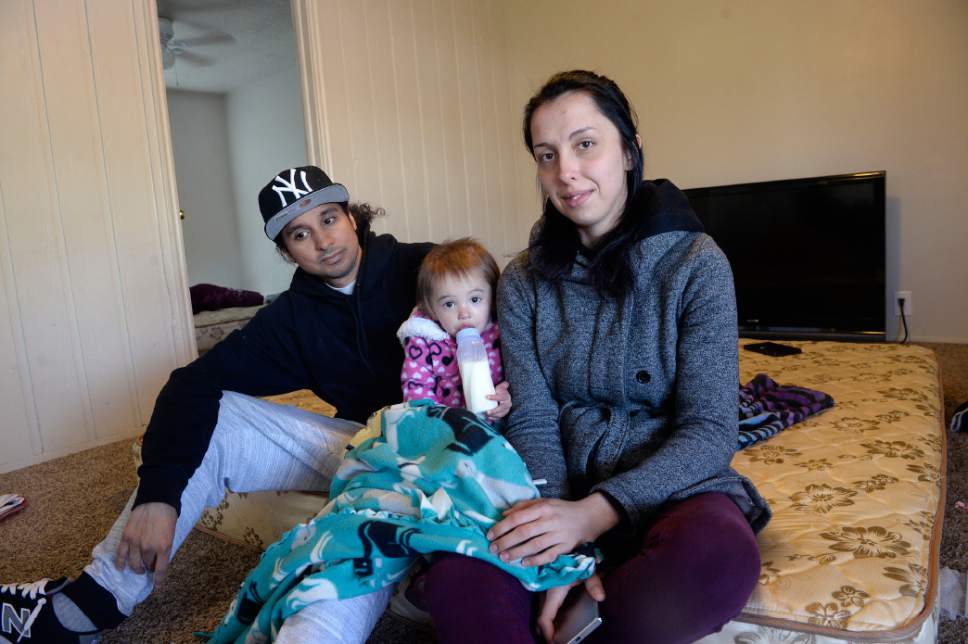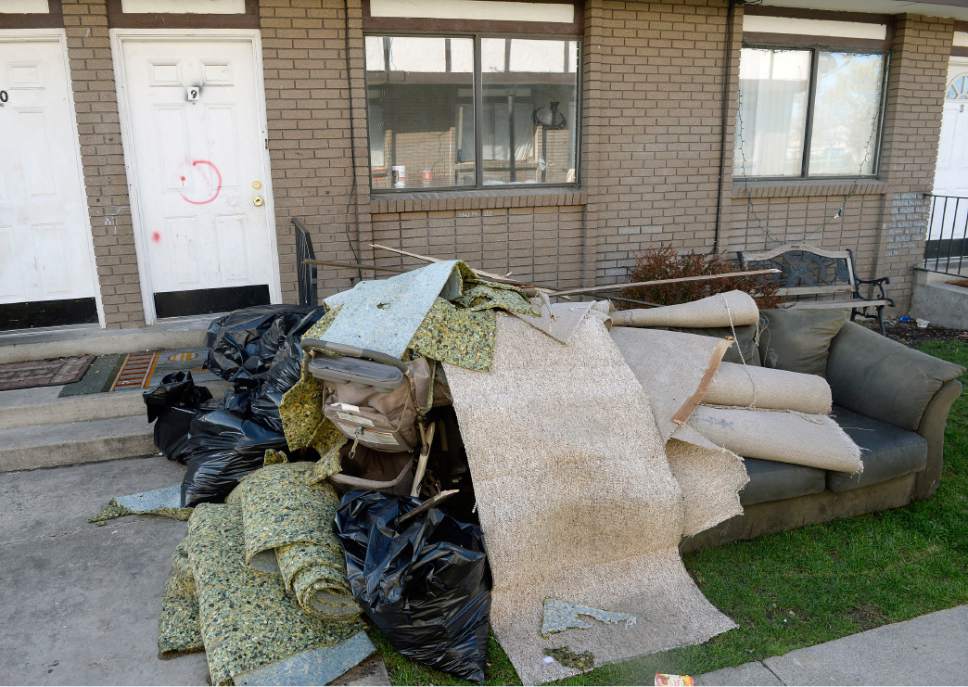This is an archived article that was published on sltrib.com in 2017, and information in the article may be outdated. It is provided only for personal research purposes and may not be reprinted.
In Salt Lake County, landlords get top dollar for federally subsidized rentals that often provide less-than-stellar living conditions.
Federal guidelines require inspections to ensure landlords can't scoop up tax dollars unless their rentals are up to all local building, safety and health codes.
That continues to be a challenge for The Road Home, which administers federal funding for the Rapid Rehousing and Section 8 Housing programs.
Matt Minkevitch, executive director of The Road Home, insists his agency inspects the private-sector rental units used in those programs subsidized by the U.S. Department of Housing and Urban Development (HUD). But with vacancy rates at 2 percent and a burgeoning homeless population, the squeeze is on and some landlords with questionable properties are benefiting from soaring rents.
The Salt Lake Tribune has found some participating units to be questionable when it comes to building and health codes.
Mikala Manzanares and Josiah Beerle have been the recipients of both Rapid Rehousing and Section 8 subsidies. Their experience may provide some insight into the programs:
It was a rainy Saturday, March 25, when Manzanares and Beerle and their three children were told to leave their two-bedroom apartment immediately and not return.
Their unit, in a complex at 650 N. 800 West in Salt Lake City, had been damaged six days earlier when an upstairs toilet sent water cascading down the stairs into the living room. Their lease ran until March 30.
A year ago, the family members were living in The Road Home's Midvale family shelter until they were placed into the apartment, which rents for $925 a month through Rapid Rehousing. Typically that program pays a deposit and three months' rent.
In this case, the deposit and accompanying inspection fee was $1,850 paid to landlord Zhong Xin Li.
But when they moved in May 15, 2016, the couple noted problems with leaks in the bathroom, some electrical outlets that didn't work, no cold water for the washer and a breaker box that would often pop.
Those items were noted by The Road Home on a document dated July 19, 2016. But there was no follow-up from the organization, Manzanares said last week.
When the Rapid Rehousing funds ran out, Manzanares and Beerle qualified for Section 8 Housing that requires tenants to pay a percentage of their income on rent and subsidizes the balance.
All the while, Manzanares said they complained frequently to the landlord regarding the malfunctioning toilet and leaking from the upstairs bathroom.
In contrast, Li said she always responds quickly to any complaints. "I fix any problems right away," she said. "That's my job."
After the flooding, the Salt Lake County Health Department deemed the unit uninhabitable.
Another renter in the complex, who refused to be named for fear of retaliation, also complained of leaks in the upstairs bathroom and outlets that didn't work. The tenant also complained of insect infestations and mice.
Salt Lake County spokeswoman Alyson Heyrend said The Road Home inspections are less rigorous than those conducted by the health department.
"The Road Home's own inspectors have been told their standards are not in sync with the health department's minimum standards," Heyrend said.
Krystyna Zandermey rented a unit at an apartment complex at 1380 S. 200 East owned by Li in 2016 through Rapid Rehousing. When she and her daughters moved in, Zandermey found the place infested with bedbugs.
The infestation continued to worsen. "The problem got so bad," she said, "that my girls were being eaten alive."
Also in 2016, The Tribune highlighted a Rapid Rehousing unit administered by The Road Home in Taylorsville that was owned by Banded Properties of North Salt Lake.
The duplex basement apartment had no mailbox, no front door (residents had to enter through the garage) and no thermostat. The heat was controlled in the upstairs unit, but the renters downstairs had to pay the heating bill. The rent was $850 a month plus utilities that ran about $100. Taylorsville officials said the duplex was not in compliance with municipal ordinances.
Unlike Zandermey, The Road Home did find Manzanares and Beerle another unit elsewhere. Li helped them move mattresses to their new home on the day she ordered them out.
But other belongings, including a sofa, washer and dryer, kitchen furniture and clothes, were left behind.
"Now we have to start all over again," Manzanares said, noting that their experience with Li was less than acceptable.
"We were lucky to get another place. But The Road Home should not just take anything that is thrown in their face," she said of available rentals, "because then people will just end up back at the shelter."
For her part, Li said that Manzanares and Beerle were responsible for the toilet overflowing because they clogged it with diapers.
The flooded unit required fast action, Li said, because there was a danger of mold growing. "Mold is not good for children," she said.
Li added that it was at her urging that The Road Home found the family a new unit.
Despite the challenges, Road Home officials say that Rapid Rehousing has shown a great deal of success.





